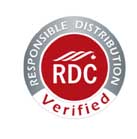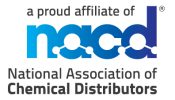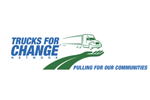Best Practices, Chemical Transportation, Hazmat Transportation
All about Tranportation Claims
Many companies make costly mistakes when handling transportation claims that result in claims not getting paid. There is a specific process that must be followed to ensure that the carrier involved pays the claim. If the shipper or consignee, do not follow this process, the carrier will have an “out” and not pay the claim. Then you’ll end up in court and give yourself a lot of headaches you don’t need. At Direct Service Network, we coach our clients through this process to ensure their claims are paid by the carrier involved.
Read MoreBest Practices, Chemical Transportation, Hazmat Transportation
The Smartway to Reduce Your Business’ Carbon Footprint
The Smartway to reduce your carbon footprint through logistics.
Read MoreBest Practices, Chemical Transportation, Hazmat Transportation
What are those 24-Hour Emergency Response Numbers?
CANUTEC and CHEMTREC 24-hour emergency response numbers defined.
Read MoreChemical Transportation, Hazmat Transportation, New DOT Regulations, New FMCSA Regulations
New Labelling Requirements for Marine Pollutants and IBC’s (Tote Tanks)
There are new labelling requirements coming out this year for marine pollutants to comply with international standards. There are also requirements for IBC’s to be labelled for stackability.
Read MoreChemical Transportation, Hazmat Transportation, New DOT Regulations
DOT Publishes new Regulations regarding phone numbers on shipping documents
In this final rule, PHMSA is amending the Hazardous Materials Regulations to clarify requirements governing emergency response information services provided by arrangement with hazardous materials offerors (shippers). In order to preserve the effectiveness of these arrangements for providing accurate and timely emergency response information, PHMSA is requiring basic identifying information (offeror name or contract number) to be included on shipping papers. This information will enable the emergency response information provider to identify the offeror on whose behalf it is accepting responsibility for providing emergency response information in the event of a hazardous materials incident and obtain additional information about the hazardous material as needed.
Read MoreBest Practices, Chemical Transportation, Hazmat Transportation
Best Practise When Shipping Chemical Drums via Truck Transportation
Loading Drums on the Floor vs. on pallets, that is the question.
Many shippers load drums differently into trucks. Some have a policy of loading on the floor without pallets. Others, have a policy of loading on pallets. Here are the pros and cons of both approaches.
Read MoreWelcome to DSN Chemical Transportation
Welcome to the Chemical Transportation Blog
Introduction to the Chemical Transport Blog.
Read More





